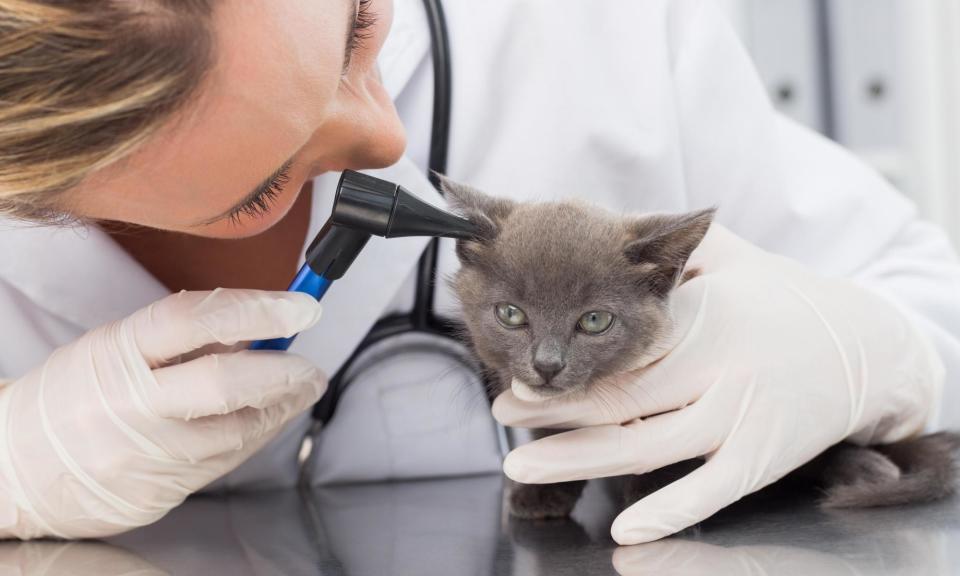UK watchdog launches full investigation into vet fees for pet owners

The UK competition regulator has launched a formal investigation into the £2bn veterinary market, over concerns that pet owners could be overpaying for medicines and are not always aware of the best treatment options available.
The Competition and Markets Authority (CMA) announced on Thursday it was pushing ahead with a review of the sector in a move that could result in prescription fees being capped and leading pet-care chains being forced to break up.
“The message from our vets work so far has been loud and clear – many pet owners and professionals have concerns that need further investigation,” the CMA chief executive, Sarah Cardell, said.
Related: ‘The vet presented it as: if you care, you pay’: who really profits from poorly pets?
“We’ve heard from people who are struggling to pay vet bills, potentially overpaying for medicines and don’t always know the best treatment options available to them. We also remain concerned about the potential impact of sector consolidation and the incentives for large, integrated vet groups to act in ways which reduce consumer choice.”
The investigation will also look at whether profits earned by vets were “consistent” with the levels expected in competitive markets, and if there was any incentive or ability to limit customer choices when recommending treatments or services – particularly when vets were part of larger groups.
Overall, the regulator said the review would consider whether current rules are preventing the market from functioning as well as it could.
If it finds poor practices, the CMA said it could end up forcing firms to provide certain information to consumers, imposing a maximum cap on prescription fees, or order the sale or disposal of businesses or assets. The CMA can also recommend that the government change the regulator’s powers.
Cardell said: “While we’re aware of acute staff shortages and difficult working conditions for vets, we consider a formal market investigation is essential to ensure good outcomes for the millions of pet owners in the UK as well as professionals working in the sector. The independent inquiry group will now take this investigation forward.”
The British Veterinary Association (BVA), which represents more than 19,000 vets across the UK, said it had already taken action on some of the CMA’s concerns, including issuing fresh guidance to members on making their fees and ownership structures more transparent.
It also said an “urgent review” of the Veterinary Surgeons Act was needed, and said regulation of vet practices should be introduced. “As it stands, the legislation is not fit for purpose and is failing both vet teams and clients,” the BVA said.
However, the BVA raised concerns about consumers taking out frustrations on veterinary staff. “As the CMA undertakes its investigation, it’s important to remember that vets genuinely care and prioritise the health and welfare of animals – it’s often their motivation for entering what is a highly pressured profession.
“Since the CMA first announced their review, vet teams in practice have found themselves on the end of really unpleasant, often abusive behaviour. This is unacceptable and we urge everyone to remember that vets are people and are often not responsible for the pricing structures within a practice.”
Responding to the CMA’s announcement, CVS – one of the UK’s six largest corporate vet groups – said it was looking forward to updates from the CMA, but stressed it had a “clear strategy with its purpose to give the best possible care to animals and its vision to be the veterinary company people most want to work for. The group is proud of the dedication and commitment of its colleagues in providing great care to its clients and their animals.”
An initial review of the vet market by the CMA in September prompted 56,000 responses from pet owners and those working in the industry.
The CMA will now set up an inquiry group of independent experts to oversee the investigation, which will be headed by its panel chair, Martin Coleman, a former partner of the law firm Norton Rose Fulbright.

 Yahoo Finance
Yahoo Finance 